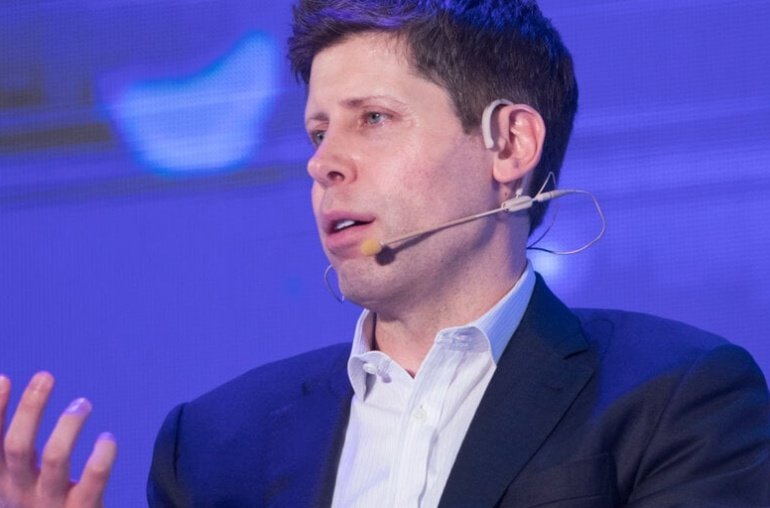Robinhood CEO Vlad Tenev has defended the company’s controversial tokenized
stock offering linked to OpenAI, saying the structure gives retail investors
valuable exposure even if the tokens do not represent actual equity, CNBC reported.The remarks come after OpenAI publicly distanced itself from the
product and EU regulators began reviewing its compliance.
OpenAI: No Approval Given for Equity Representation
Last week, OpenAI issued a warning on X, stating that
Robinhood’s tokens do not represent actual shares in the company and that any
transfer of OpenAI equity requires prior approval, something the AI firm said
it never granted.
Robinhood CEO downplays OpenAI concerns on tokenized stock structure https://t.co/6tWzgrtBXa
— CNBC Tech (@CNBCtech) July 8, 2025
Robinhood launched the product as part of its
broader effort to allow EU-based users access to synthetic exposure in
high-profile U.S. companies, including private firms.
“Not Technically Equity, but Still Exposure”
Speaking on CNBC’s Squawk Box Europe on Tuesday,
Robinhood CEO Vlad Tenev acknowledged that the tokens are not technically
equity but argued that this distinction is not the most important factor.
However, he said that what was important was that retail customers have an opportunity to get exposure to this asset, referring to OpenAI and other private firms. He added that OpenAI’s structure already
allows for indirect institutional exposure through instruments that convert to
equity under certain conditions.
JUST IN: Robinhood CEO Vlad Tenev says tokenization is the biggest innovation “in the past decade.” pic.twitter.com/fhiTiaCSw2
— Watcher.Guru (@WatcherGuru) July 8, 2025
Robinhood said its OpenAI tokens are backed by a stake
in a special purpose vehicle (SPV), which is designed to provide synthetic
exposure rather than direct ownership. This structure enables users to
participate in the performance of hard-to-access private firms without holding
traditional shares.
Lithuanian Regulator Seeks Clarification
The Bank of Lithuania, which oversees Robinhood’s EU
operations, said it is assessing the legality of the token product following
OpenAI’s public statement.
Robinhood stock tokens face scrutiny in the European Union after OpenAI warning https://t.co/Ml8joslub2
— CNBC (@CNBC) July 7, 2025
He added that information given to investors “must be
provided in clear, fair, and non-misleading language.” In response, Tenev said
the company will work with regulators and emphasized that Robinhood anticipated
questions. “Since this is a new thing, regulators are going to want to look at
it,” he said.
The situation highlights the regulatory uncertainty
surrounding new financial instruments offering access to private markets. While
Robinhood markets the tokens as a way to democratize exposure to growth
companies, the dispute with OpenAI and the involvement of EU regulators suggest
a longer road ahead in proving the model’s legitimacy.
Robinhood CEO Vlad Tenev has defended the company’s controversial tokenized
stock offering linked to OpenAI, saying the structure gives retail investors
valuable exposure even if the tokens do not represent actual equity, CNBC reported.The remarks come after OpenAI publicly distanced itself from the
product and EU regulators began reviewing its compliance.
OpenAI: No Approval Given for Equity Representation
Last week, OpenAI issued a warning on X, stating that
Robinhood’s tokens do not represent actual shares in the company and that any
transfer of OpenAI equity requires prior approval, something the AI firm said
it never granted.
Robinhood CEO downplays OpenAI concerns on tokenized stock structure https://t.co/6tWzgrtBXa
— CNBC Tech (@CNBCtech) July 8, 2025
Robinhood launched the product as part of its
broader effort to allow EU-based users access to synthetic exposure in
high-profile U.S. companies, including private firms.
“Not Technically Equity, but Still Exposure”
Speaking on CNBC’s Squawk Box Europe on Tuesday,
Robinhood CEO Vlad Tenev acknowledged that the tokens are not technically
equity but argued that this distinction is not the most important factor.
However, he said that what was important was that retail customers have an opportunity to get exposure to this asset, referring to OpenAI and other private firms. He added that OpenAI’s structure already
allows for indirect institutional exposure through instruments that convert to
equity under certain conditions.
JUST IN: Robinhood CEO Vlad Tenev says tokenization is the biggest innovation “in the past decade.” pic.twitter.com/fhiTiaCSw2
— Watcher.Guru (@WatcherGuru) July 8, 2025
Robinhood said its OpenAI tokens are backed by a stake
in a special purpose vehicle (SPV), which is designed to provide synthetic
exposure rather than direct ownership. This structure enables users to
participate in the performance of hard-to-access private firms without holding
traditional shares.
Lithuanian Regulator Seeks Clarification
The Bank of Lithuania, which oversees Robinhood’s EU
operations, said it is assessing the legality of the token product following
OpenAI’s public statement.
Robinhood stock tokens face scrutiny in the European Union after OpenAI warning https://t.co/Ml8joslub2
— CNBC (@CNBC) July 7, 2025
He added that information given to investors “must be
provided in clear, fair, and non-misleading language.” In response, Tenev said
the company will work with regulators and emphasized that Robinhood anticipated
questions. “Since this is a new thing, regulators are going to want to look at
it,” he said.
The situation highlights the regulatory uncertainty
surrounding new financial instruments offering access to private markets. While
Robinhood markets the tokens as a way to democratize exposure to growth
companies, the dispute with OpenAI and the involvement of EU regulators suggest
a longer road ahead in proving the model’s legitimacy.




